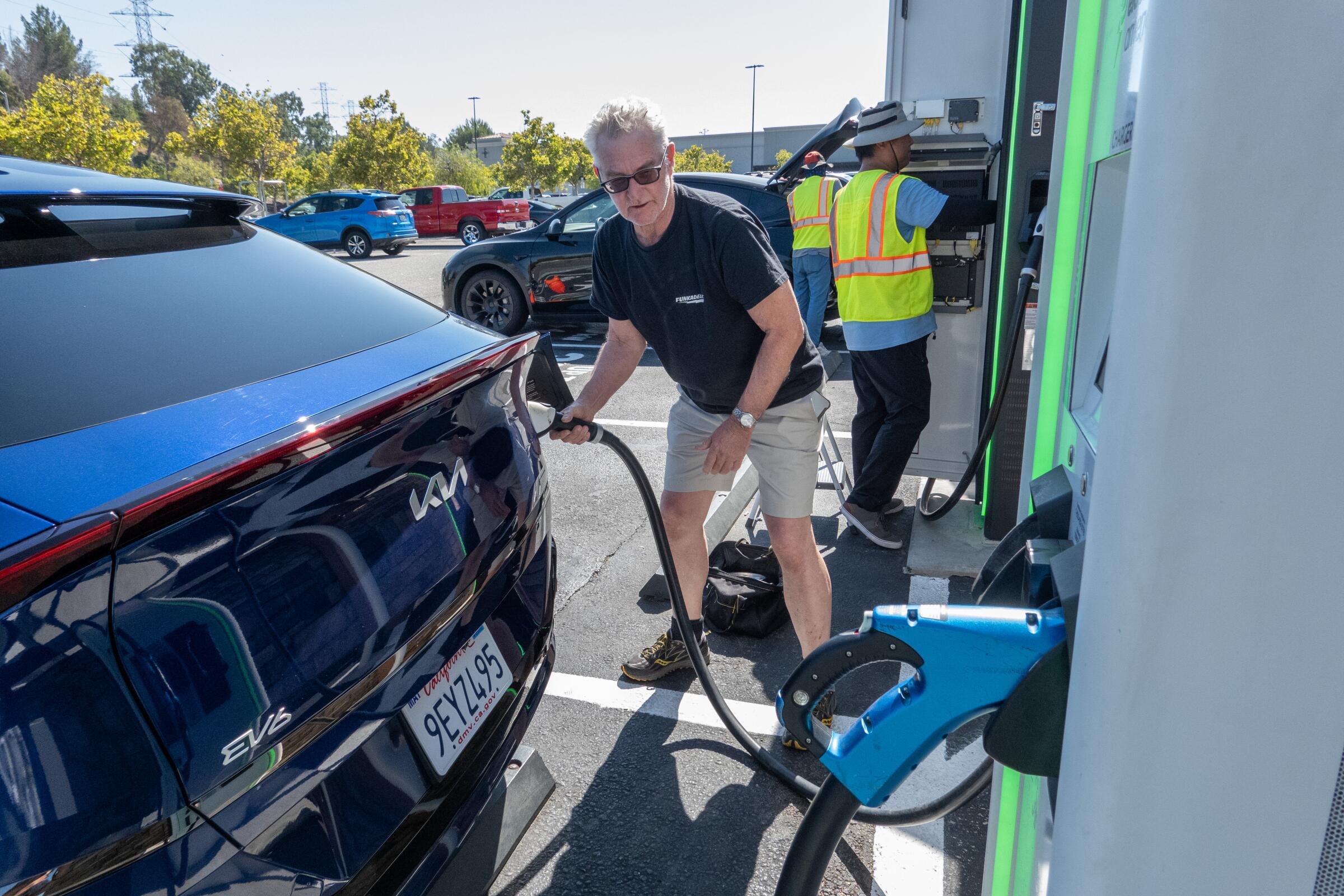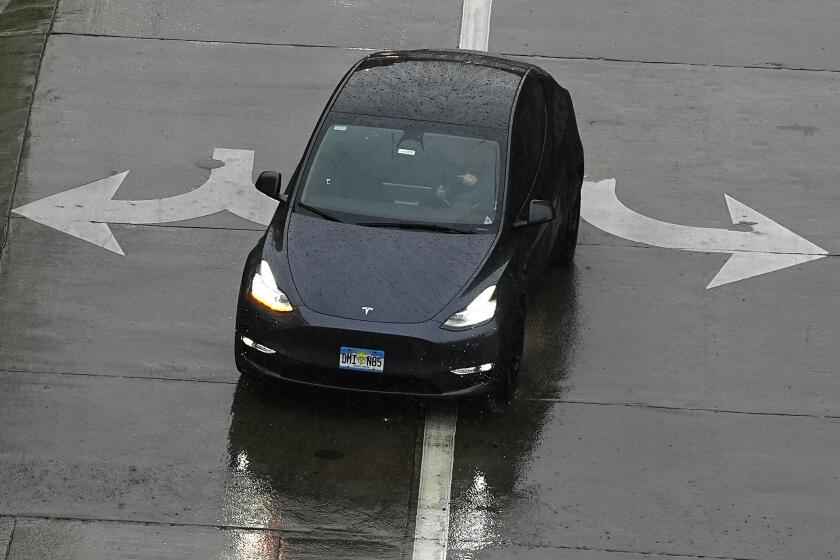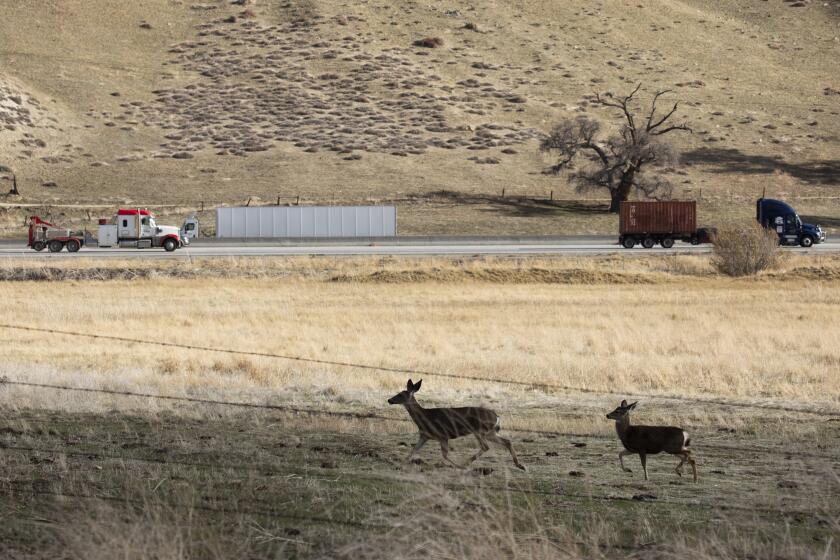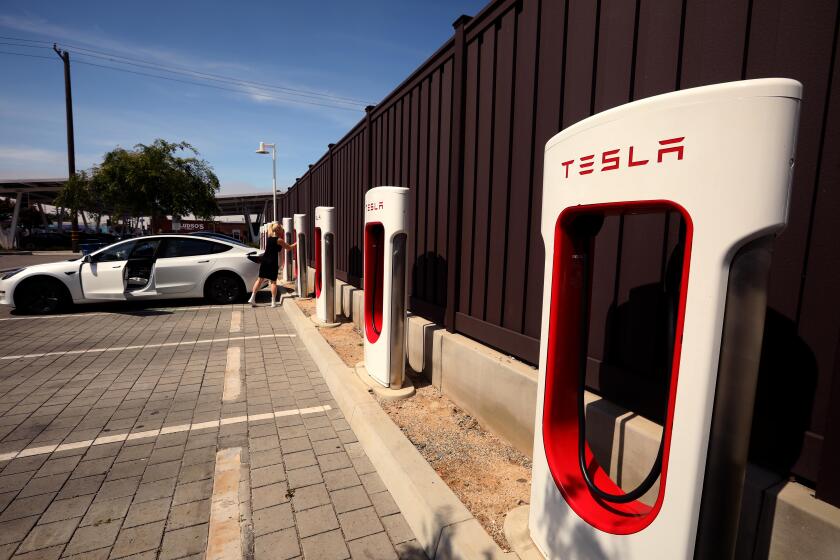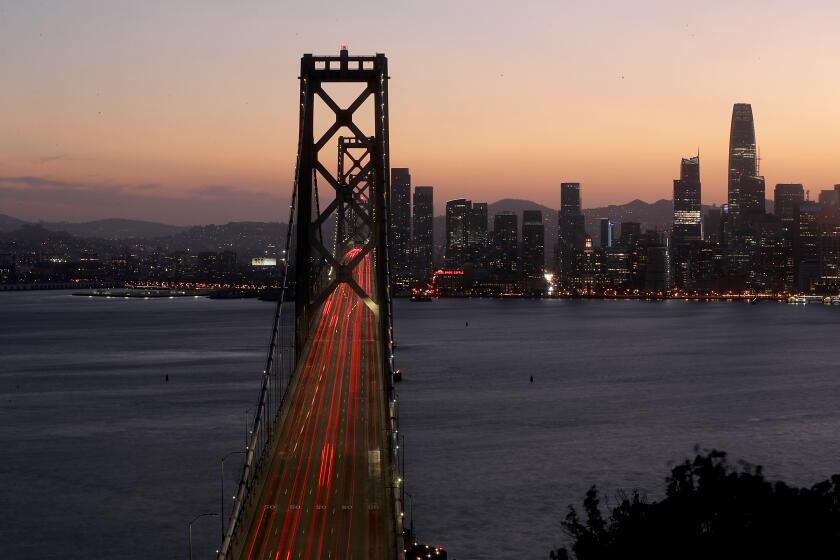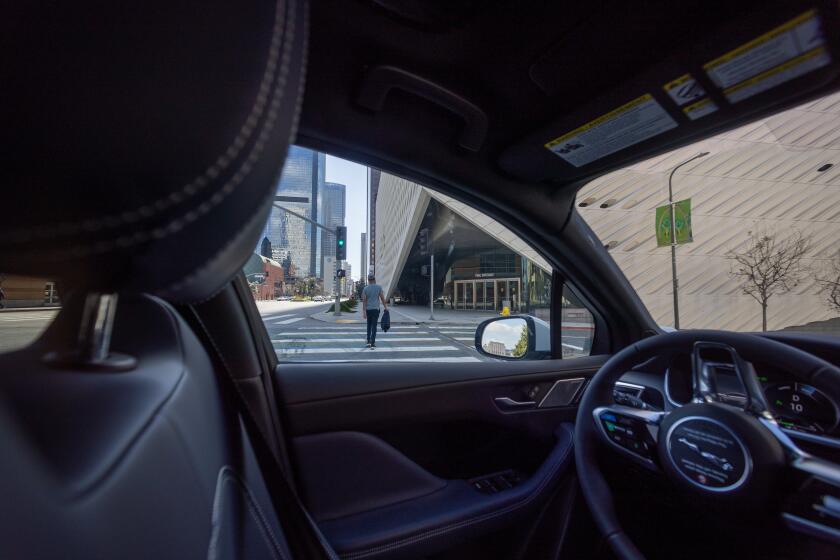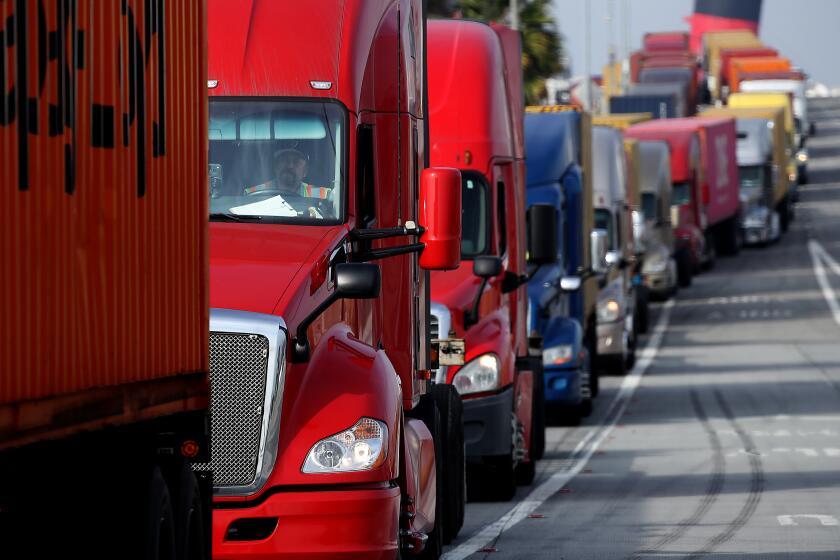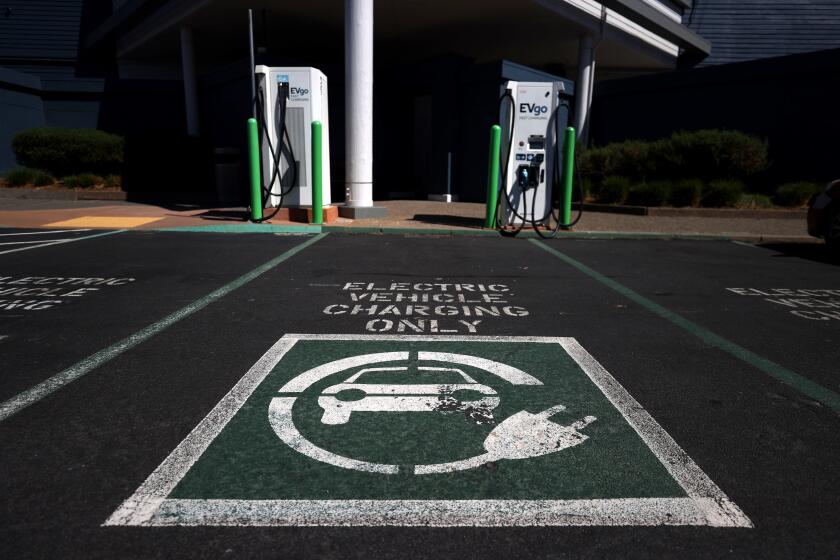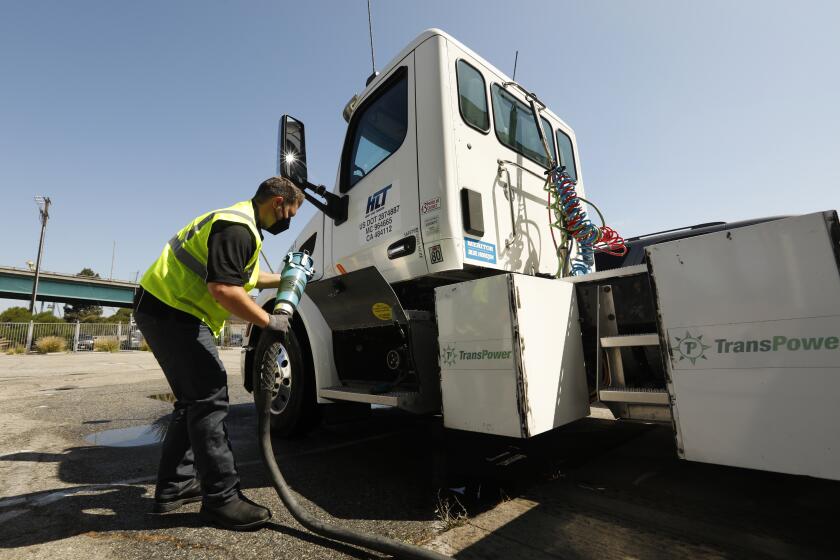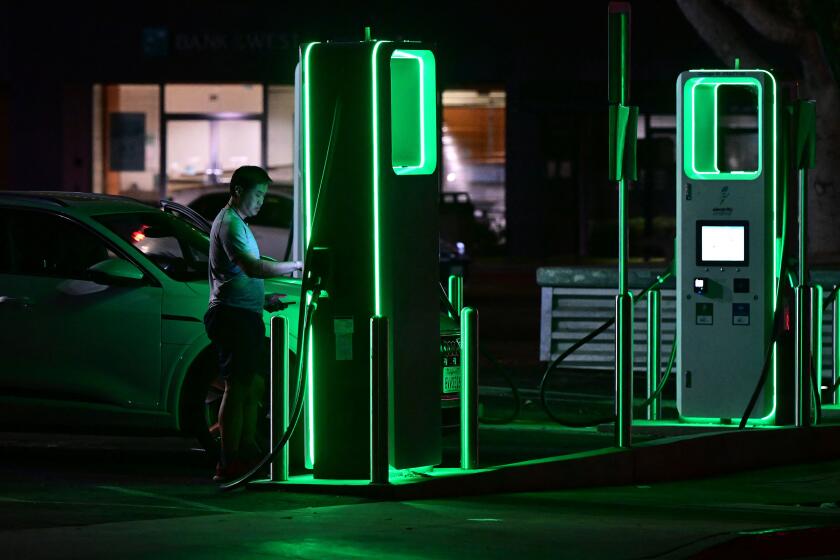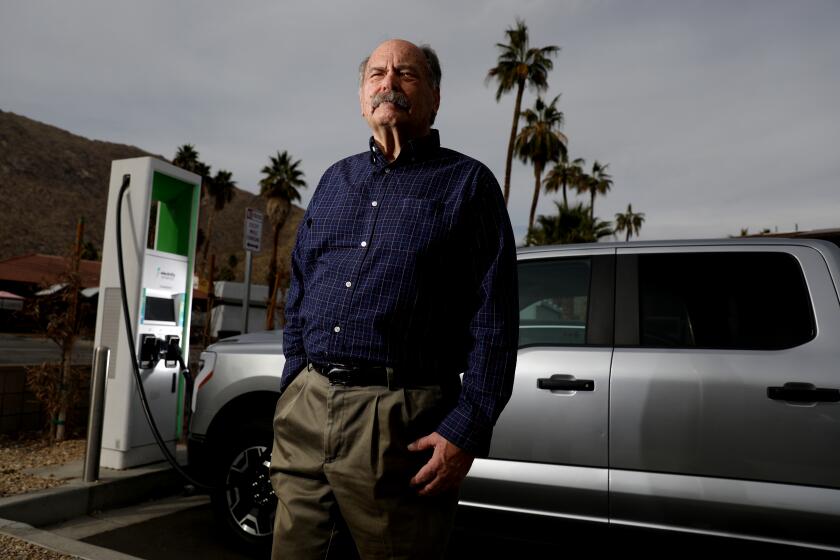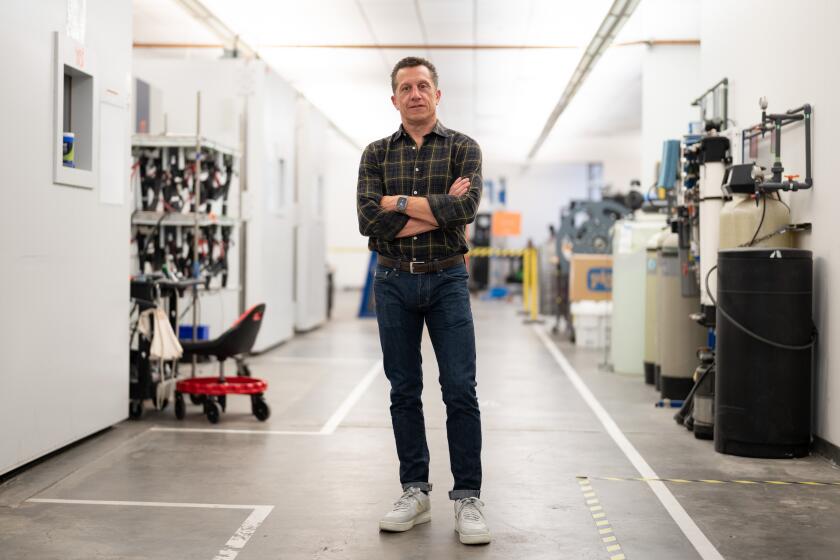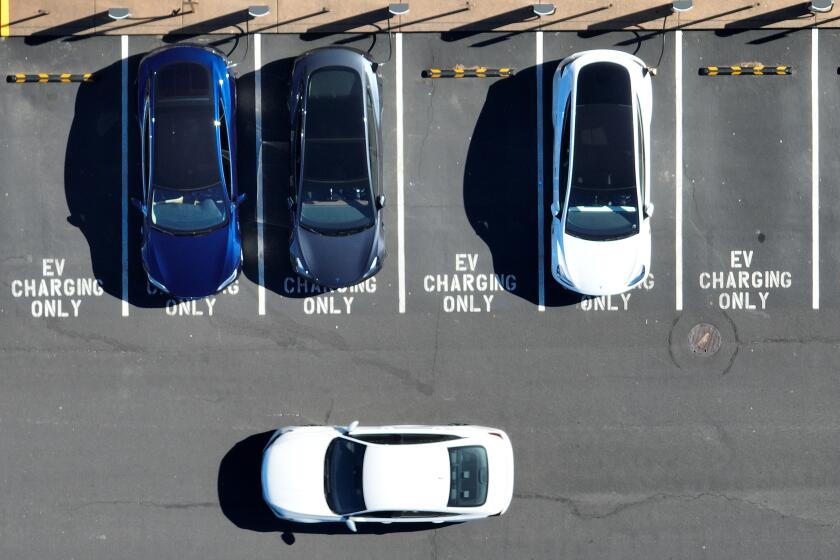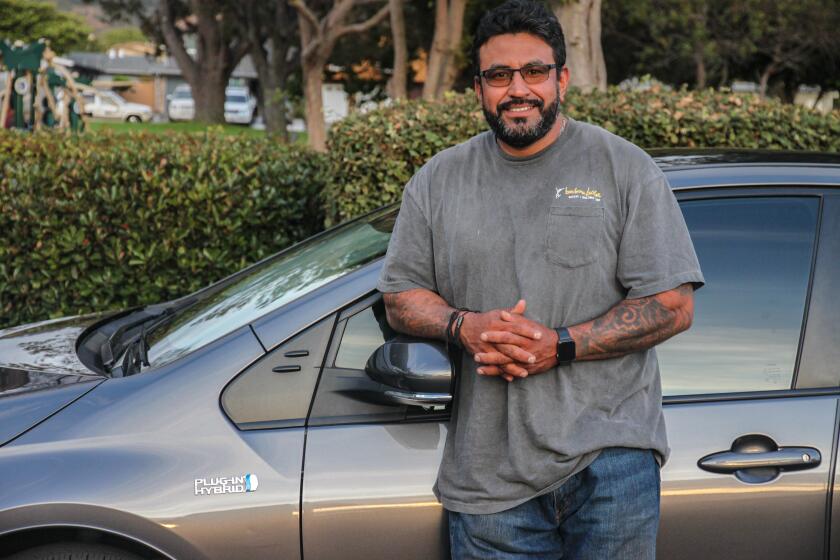1
California is undergoing an epic transition to electric vehicles and energy storage.
The state has ambitious climate goals, including a pledge to ban the sale of new gasoline- and diesel-powered cars and light trucks by 2035.
But sales are falling, charging stations have proved unreliable and incentives are hard to understand.
Advertisement
Find the latest coverage here:
Read more coverage
After years of rapid growth, electric vehicle sales in California went flat in the middle of last year and are now in decline.
Starbucks and Mercedes-Benz announce a plan to install fast chargers open to all electric vehicles at 100 Starbucks cafes along Interstate 5, starting in 2025.
A positive long-term forecast for EV adoption adds a bit of glow to recent news of sales slowdowns that are a challenge to California’s climate goals.
A flood of cheap Chinese electric car exports has raised the specter of another trade war with the U.S. And it has Tesla worried.
Non-Tesla EV drivers will want to double-check their routes before planning a road trip that relies on the Supercharger network. Not all California locations are open to other makes of EVs yet.
The women who started ChargerHelp are driven to succeed and to train a workforce of people who are often overlooked. They’re also addressing a major issue with EV charging in California: reliability.
The drive to electrify personal cars in California has, at best, hit a rough patch. The big question is whether current conditions will turn out to be growing pains.
Between 2018 and 2022, the Bay Area’s carbon emissions fell by 1.8% each year, which Berkeley researchers attribute to drivers switching to electric vehicles.
Look both ways — and then look again. A new study urges EV drivers to be extra cautious, as pedestrians are probably less likely to hear an oncoming electric car.
The federal regulations don’t mandate electric trucks or school buses, unlike California’s tougher standards. But the EPA’s rules will curtail a billion tons of greenhouse gas emissions each year.
A U.S. EPA rule would require car manufacturers to increase sales of electric vehicles while cutting carbon emissions from gasoline-powered vehicles.
The study, sponsored by the freight truck industry, adds to concerns over government mandates. But government officials say the move away from fossil fuels will have economic benefits.
California electric vehicle sales dropped significantly in the last half of 2023, raising questions about the state’s ability to phase out gas-powered cars.
Despite complaints over the reliability of EV chargers, California regulators have approved Electrify America’s latest plan to expand charging infrastructure.
Why are so many California EV charging stations broken? Lax state oversight of state subsidies is one big reason.
ChargePoint’s CEO made tens of millions of dollars on state subsidies, no profits and an unreliable charger system.
As EV sales grow, gas taxes will fall. That means less money for California road construction, maintenance and repairs.
Plug-in hybrid cars are an often overlooked alternative to full electric vehicles. But will they help the warming world? It’s controversial.
As autos writer for the L.A. Times, Russ Mitchell gets a lot of questions about electric car buying. Here’s his guide to choosing the right EV for you.
Aggressive and impactful reporting on climate change, the environment, health and science.
